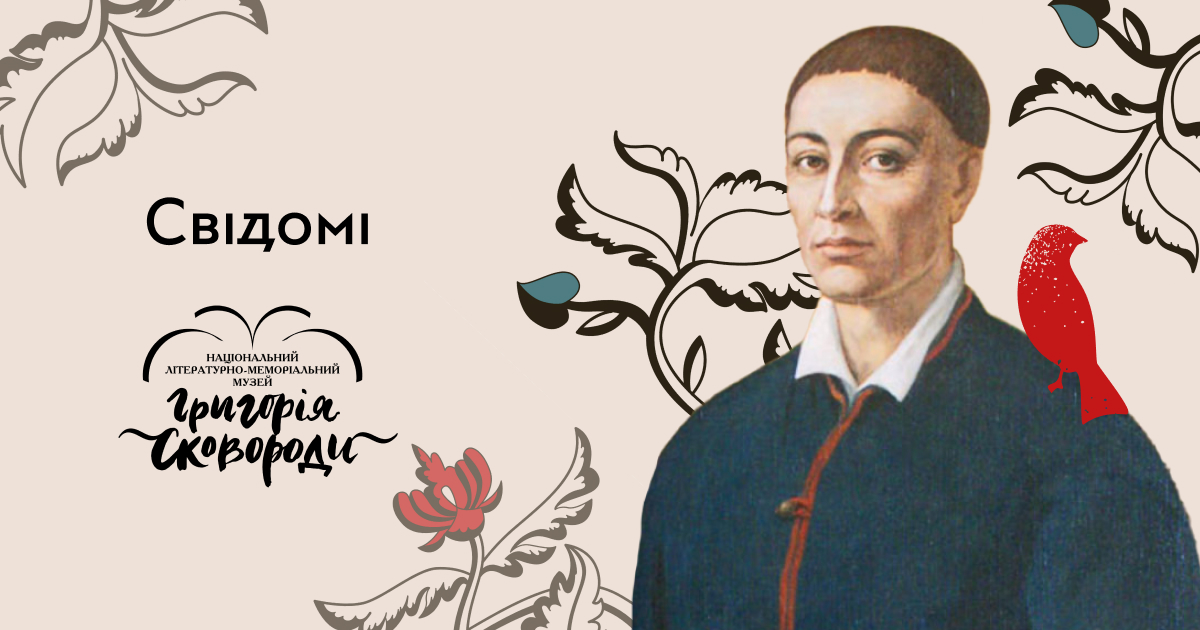Hryhoriy Skovoroda: 300 years and war

December 3 is the birthday of Hryhorii Skovoroda, one of the most famous Ukrainian philosophers. He was born in 1722, so in 2022 the world celebrates the three hundredth anniversary of the philosopher's birth.
It would seem during 2022 Ukraine was predominantly busy with war. No time for philosophy. However, earlier this year Skovoroda has already made an appearance. As May the 6th was fading away, the Russian army launched a rocket attack on the Skovoroda National Museum, situated in the village of Skovorodynivka, Kharkiv Region. The border with Russia is in 20 kilometers. At the time, active hostilities were taking place 35 kilometers away from the village. There are no other buildings near the museum. Under such circumstances, it is hard to imagine how a missile could hit a cultural institution in an accident. Most likely, this projectile was targeted at the museum.
Hryhorii Skovoroda traveled a lot in the north-east of Ukraine. Skovorodynivka is not the only settlement that is associated with him and suffered from the Russian full-scale invasion. For example, the philosopher wrote a number of works in Velykyi Burluk, a village that spent six months under temporary occupation. Skovoroda also visited Kupyansk and Izyum, two town that made it to headlines globally due to the September counteroffensive of the Armed Forces of Ukraine.
Skovoroda played an important role in the development of Ukrainian literature, because the philosopher stood between two eras, two socio-cultural positions - baroque and romanticism. During this transition from early modern to modern time nation-building processes began in Europe in general and in Ukraine in particular. Currently, Ukrainians are going through yet another transformational period. Therefore, we may ask ourselves: could Skovoroda's philosophy help us in coming to terms with these changes?
«Srodnist» (Relatedness)
This idea plays a key role in Skovoroda's thinking. The philosopher believed that people are made different, but they can equally be happy. The necessary condition – do what really suits your interests. But how do you render them? For Skovoroda, the answer is simple: «any mystery is solvable, just find its "outer shadow"». Skovoroda observes children and notes that they have different interests. Some imagine that a cat is a horse and plows the land with it. For others it is more interesting to play around with books, yet others enjoy playing with imaginary weapons more. Children do not seek money or awards, so they do what they are really interested in.
Of course, this position could be criticized – you could say that children only reproduce what they see around. But can you be happy while playing a role? Skovoroda would respond to such criticism by saying that the «external shadow» of such a person allows one to see the «nesrodnist» (unrelatedness) of his work. «It is better to be a cat than a lion with the nature of a donkey», – writes the philosopher.
At first glance, these considerations have no place now in Ukraine. The full-scale invasion forced many people out of their jobs. Instead, you often have to do something you do not quite can. However, this does not automatically mean that such work is «nesrodna» (unrelated). A significant part of Ukrainians wants to be actively involved in the country's defense efforts. «Srodnist», in this case, is the ability to live up to your expectations of yourself. Even if it is difficult and exhausting. «Make no mention of difficulty, if the deed is right», – writes the philosopher.
Skovoroda on war
Did Skovoroda write about war? Hardly. He lived in the time before the Napoleonic Wars, when nationalism as a defense mechanism was still in formation. Wars were fought not by a citizen army, but by mercenaries. They were motivated by bounty, and not by a national idea.
At the same time, the philosopher uses the metaphor of war in the twentieth poem from his collection «The Garden of Divine Songs»:
If you have a clear soul
Why wound you need armor
And a helmet on your head?
There is no need for war.
Purity is your armor,
And innocence is a diamond wall.
[...]
This city is not afraid of bombs
Or the arrows which belie,
It will not be afraid of cunning projectiles,
It is always intact - never burned.
Purity is the diamond,
And innocence is the sacred city.
Reading the poem literally will only make you laugh. For Ukrainians, armor, helmets, and walls are essential. At the same time, Skovoroda's ideas can be interpreted as a rather optimistic forecast of Ukraine's future. Ukraine is not to blame for the Russian invasion. Ukrainians are not afraid of Russian propaganda about the causes of the war and will always debunk them. No matter what the Kremlin does, no matter what weapon it uses, it will not change the essence of the war. Ukrainians are sincere in defending their borders. Ukraine can admit its mistakes, because we know that lying will not lead anywhere.
Skovoroda after three hundred years
About 70 years ago, there was a big holiday in the Soviet Union - the 300th anniversary of the "March Articles" concluded between the Hetmanship and the Moscow Empire. This document created a union between the forerunners of the Ukrainian and the Russian states. «Together forever», Soviet propagandists shouted at the time.
This «forever» is coming to an end. Today, Ukraine celebrates the 300th anniversary of the philosopher Hryhoriy Skovoroda, whose ideas origina from the Ukrainian baroque tradition and folk wisdom. He is a self-sufficient figure, independent of the "great Russian culture". This is just the way Ukraine will be in this century.


